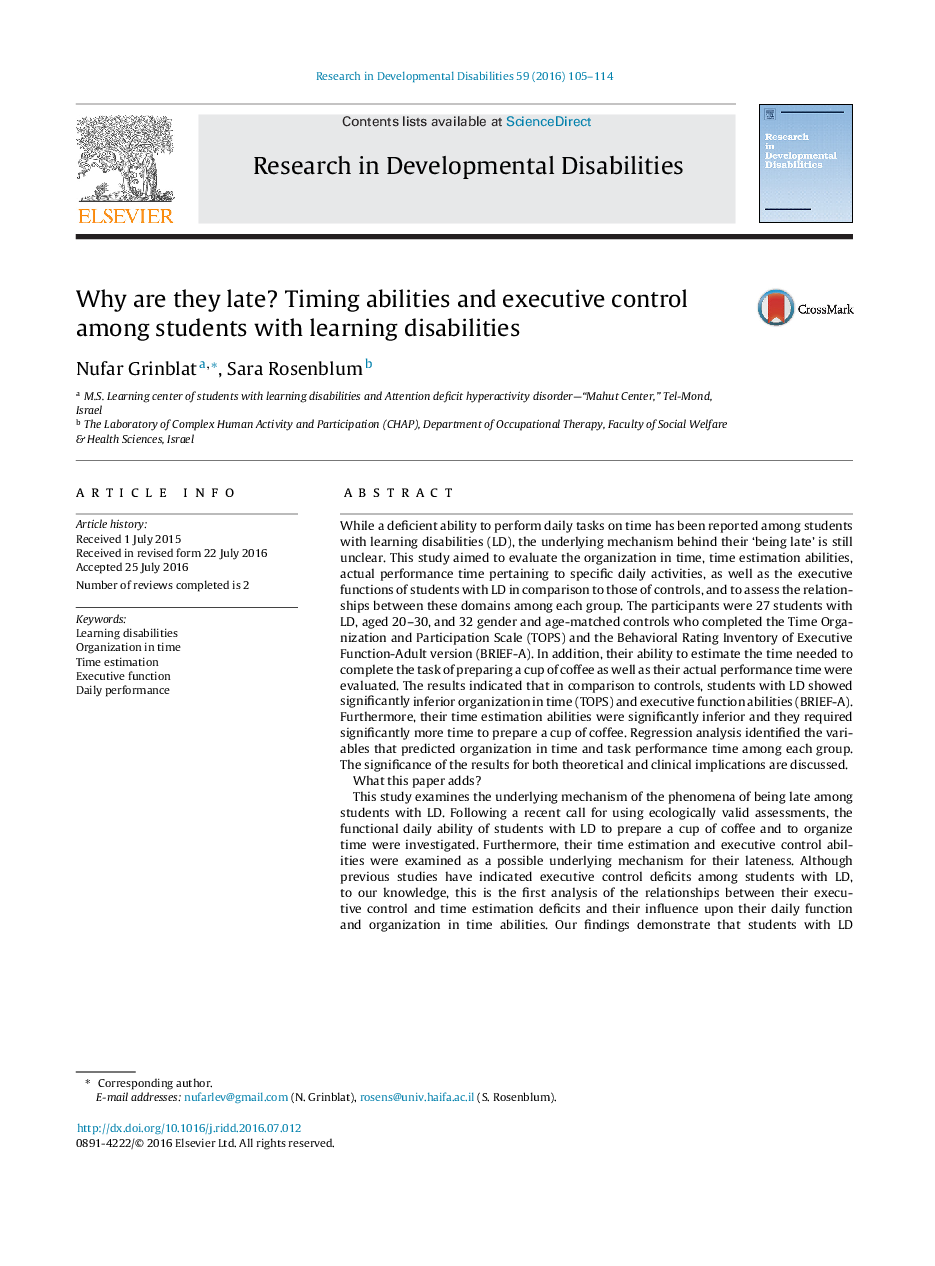| Article ID | Journal | Published Year | Pages | File Type |
|---|---|---|---|---|
| 6848340 | Research in Developmental Disabilities | 2016 | 10 Pages |
Abstract
This study examines the underlying mechanism of the phenomena of being late among students with LD. Following a recent call for using ecologically valid assessments, the functional daily ability of students with LD to prepare a cup of coffee and to organize time were investigated. Furthermore, their time estimation and executive control abilities were examined as a possible underlying mechanism for their lateness. Although previous studies have indicated executive control deficits among students with LD, to our knowledge, this is the first analysis of the relationships between their executive control and time estimation deficits and their influence upon their daily function and organization in time abilities. Our findings demonstrate that students with LD need more time in order to execute simple daily activities, such as preparing a cup of coffee. Deficient working memory, retrospective time estimation ability and inhibition predicted their performance time and organization in time abilities. Therefore, this paper sheds light on the mechanism behind daily performance in time among students with LD and emphasizes the need for future development of focused intervention programs to meet their unique needs.
Related Topics
Life Sciences
Neuroscience
Behavioral Neuroscience
Authors
Nufar Grinblat, Sara Rosenblum,
